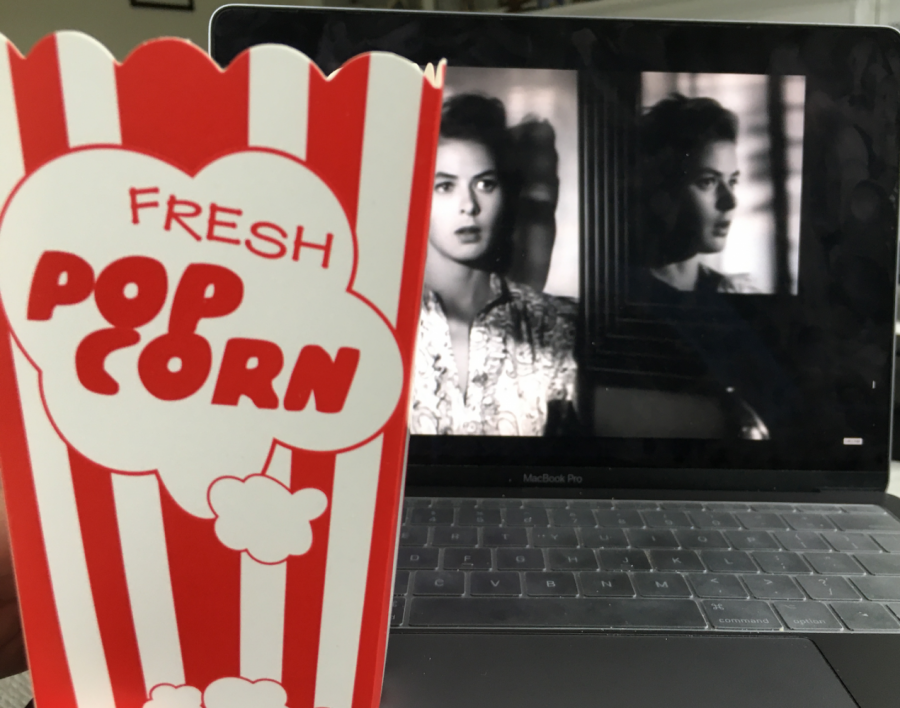Since the coronavirus pandemic has swept the nation and the world, it seemed only natural that all public venues, including movie theaters, would need to shut down. It started off with independently-owned theaters. One by one, theaters started to close their doors. Movies, releasing within days, were being postponed and rescheduled. Then, the situation worsened. Panic grew along with cases of the virus and deaths. AMC Theatres and Regal Cinemas, the country’s leading theater chains, shut down. Not just in a few cities or states; they shut down nationally. Since February of last year, I had been an employee of Regal Cinemas. Before that, I was a weekly attendee. If someone were to ask me where my home was, I’d say the movie theater. I’m sure there are many others who would respond with the same thing. This closure creates an emptiness, and many, including myself, are actively trying to fill that void.
In the age of streaming, one might think the simplicity of watching a film at home in the comfort of your own space might trump the theater experience. One might think that since most people are ditching theaters, it’s not a big deal that they’re shutting down for a bit — just speeding along the process of an eventual and inevitable extinction. After all, movie theaters are a dying breed.
A movie theater is a hub of germs. It’s a communal experience, yes, but it’s also one where you are in a room full of strangers sitting close together. Shutting movie theaters down is a great way to prevent a virus from continually spreading. Yet, in this time of struggle and fear and paranoia, people need an escape. That escape used to be when you went home and turned the TV on. Now, with most of the workforce, and everyone else being home quarantined all day, that’s not so much an escape as a day to day reality. Movie theaters, in a time like this, are needed more than ever. And even though, yes, they are closed right now, this whole situation should reinforce and remind us why movie theaters are vital to the human experience. Ezra Stead, projectionist at the IFC Center in Manhattan, remains optimistic.
“I think there are enough people who have a love for the actual moviegoing experience and will clamor back to theaters when they finally can again,” Stead said. “Even the more casual moviegoer will undoubtedly miss it as a social experience. It’s not just about the size of the screen or the surround sound, but the experience of going out to a theater.”
Without movie theaters, we are realizing our need for a communal human experience; the need to love and laugh and cry and feel collectively is not being satisfied.
Professor Nicholas Tanis from Tisch School of the Arts undergraduate film program believes cinemas will weather this crisis.
“We’re social creatures. We like to be in crowds and to experience the thrill of a group experience,” Tanis said. “The movie theater industry as a whole will not die. Have play theaters died altogether? Theater has been declared dead for many years yet it thrives. Books were declared dead yet we’re still reading omnivorously. Some movie theaters won’t be able to reopen. Most will thrive once more.”
Film critic and journalist Glenn Kenny disagrees.
“Every industry will be hurt by this, and be forced to make adjustments. The studios that have adapted most aggressively to streaming, like Disney, may be hurt less. For an already weak or struggling studio, of which Paramount is an arguable example, the damage may be irreversible,” Kenny said.
It’s the smaller films that are being hurt and will continue to be as long as this mandatory closure continues. The films like the Brazilian western “Bacurau” or the British drama “Sorry We Missed You”, that will be lost in oblivion after the lack of screenings, relegated to video on demand and streaming. Normally, these films thrive on the business of arthouse movie theaters. They thrive on film festivals and public screenings. These are the films and the businesses that will be hurt. While AMC and Regal will emerge unscathed at the finish line, arthouse and niche theaters will become even more of an ancient race. If we lose this experience we may lose the chance to see these films theatrically altogether. When asked if people would come back to theaters in the same or larger numbers after the closure has ceased, Kenny was cautiously optimistic.
“I think people will want to go back to theaters, so long as they can feel completely safe doing so,” Kenny said. “People don’t like not doing things because powers greater themselves are telling them not to, so theater attendance may grow once the pandemic is over just out of a form of defiance.”
Filmmaker Christopher Nolan wrote an op-ed in the Washington Post about this very subject last week.
“There are parts of life that are far more important than going to the movies,” Nolan said. “But, when you consider what theaters provide, maybe not so many as you might think.”
So what now? How do we move forward? Movie theaters are an essential part of the human experience. Their loss would be a detrimental one. Yet, for lovers of the cinematic experience and the feeling of being transported in a dark theater, we can only choose to be hopeful that they will live to see a brighter day in a darkened room.
Email Mas Bouzidi at [email protected].























































































































































